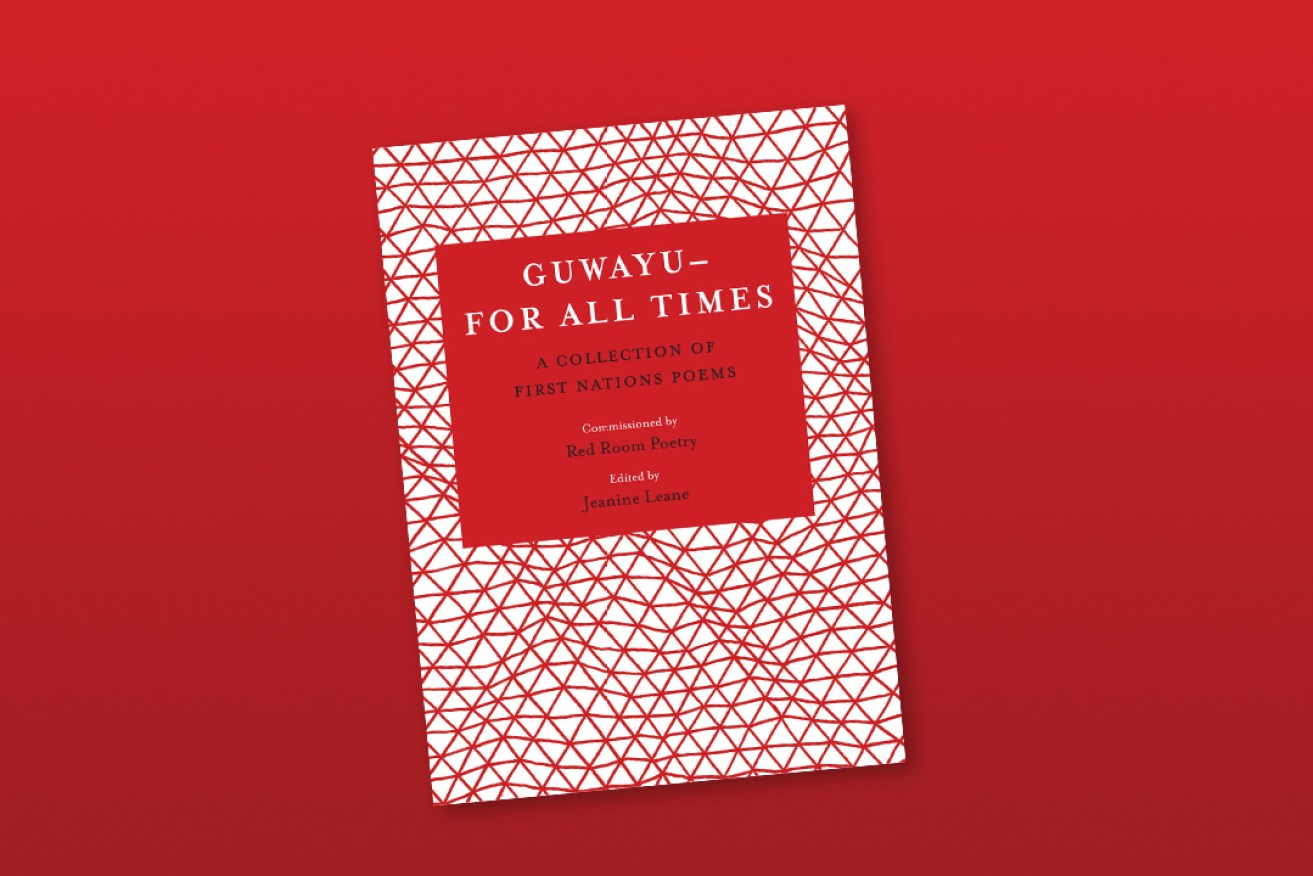Book review: Guwayu – For All Times
In the latest article in Writers SA’s literary criticism series A Year in Review, Susie Anderson reviews a ‘fiercely uncensored’ collection of 61 poems from First Nations poets in 12 First Nations languages.

In Funny Weather, her recent collection of essays about the impact art has had on our increasingly strange and unbelievable world, Olivia Laing suggests that art offers both resistance and repair. Both of these are crucial factors in the funny times we find ourselves in. These two concepts resonated with me as I read Guwayu – For All Times, a 2020 Red Room Poetry anthology edited by acclaimed Wiradjuri writer and academic Jeanine Leane.
For me, poetry has always been a vessel for honest expression. And the thing about “understanding poetry” that has been equally important is simply whether it means something. Am I having a reaction? Where am I feeling it? Guwayu is a vessel, too, of “twenty-first century, living Aboriginal culture”.
Along with resistance and repair, accessibility was another frame for this response to Guwayu. It’s a poetry collection that resists western modes of publishing and editing, which in turn brings down barriers to entry. “A radical intervention in Aboriginal publishing for its breadth of representation, diversity of language, and drafting and editing protocols”, the publication welcomed writings as they came, without attempts to edit, shape or otherwise change the intent of the writer.
Legacies of the damages of removing Aboriginal people both physically from the land and out of history feel almost impossible to repair. Bruce Pascoe, Samuel Wagan Watson and Brenda Saunders (among others) reflect on this with skill in Rhyming the dead, The Disappearing and Extinction Elegies, the various Red Room Poetry projects that populate this collection.
It also may feel impossible to untangle ourselves, as First Nations creatives, from accidental indoctrination to settler ways. Yet by creating incursions into institutions or systems previously used against us we can start to bring them down and push back from within. That spirit is very much alive in Guwayu. The writers push back against old models of literature that don’t honour language, culture, knowledge, or our difference.
Guwayu reminds us poetry is an artform that needs more people to come towards it, rather than away from it
Declan Furber Gillick’s bilingual story Bigger than school stuff is a comprehensive example of this approach. Along with the corresponding author’s note describing the significance of the translation process, the content of the short story itself shares the various levels of engagement with language across community in Mparntwe (Alice Springs). These threads give the reader more entry points, enabling them to weave this into their own story. It’s exactly the peek behind the curtain that wouldn’t make it into any other poetry collection or any other publication, but its appearance here adds fullness to the reading experience.
Leane refers in her editorial to woven vessels passed down generations, how “entwined with each thread is something of the maker that is retained as baskets and nets are passed on” (xvii). Guwayu is indeed a book of poetic resistance, pushing at those limiting boundaries and beliefs of how a poetry collection should be brought together or what constitutes something ready for publication, even the notion of finished. Moving through the resistance phase, weaving together words towards repair.
Ali Cobby Eckermann and Kirli Saunders, whose award-winning writing I know and love, appear alongside names that are new to me, including emergent poets like Kaitlen Wellington and Joel Davison. Yarns about love of Country by John “Muk Muk” Burke, Yvette Holt and Paul Collis evoke the breadth of our connection to the land in a way that makes me ache to get out of the city. All these sit alongside one another, weaving a diverse picture of Aboriginal lives and writing.
By resisting the limiting definitions of the past, First Nations poets can repair how our stories have been taken from and told for us. Guwayu is a collection that reminds us poetry is an artform that needs more people to come towards it, rather than away from it. This power shift is important not only to continue the elevation of First Nations writers in the discourse, but for the wider literary community. Breaking down the historically exclusive and unyielding boundaries of what is considered part of it and who is allowed in can only be a good thing.
Guwayu – For All Times, commissioned by Red Room Poetry and edited by Jeanine Leane, is published by Magabala Books.
Susie Anderson’s words from the intersection of compassion and resistance have been published widely in print and online. A Wergaia woman from Western Victoria, she currently lives in Melbourne.
——————-
A Year in Review is an initiative by Writers SA, with assistance from the Australia Council of the Arts, to produce a series of book reviews published in InDaily over the next 12 months.
The reviews will focus on titles published during the pandemic, highlighting the work of Australian authors and publishers during this difficult time for the sector, and giving literary critics an outlet for their work that supports a strong culture of reading.
See previously published reviews here.




